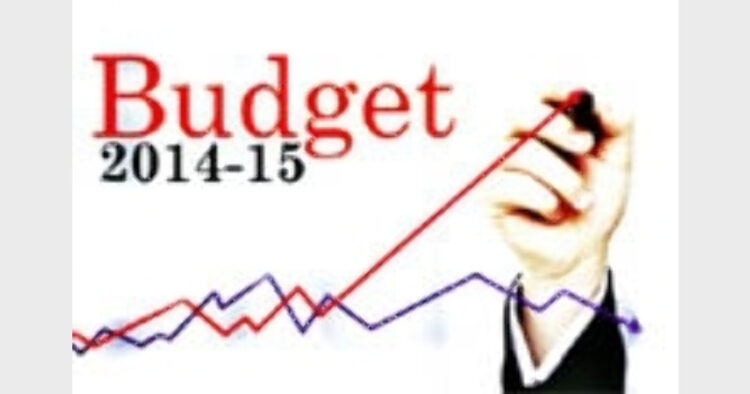Good job under pathetic leftovers?
Intro: Jaitley did not received the best of conditions to present the new government’s maiden Budget. But yet the overall message of Budget 2014-15 is one of prosperity.?
 So Arun Jaitely presented his budget (2014-15) and has largely won over the encomia of the media – always a difficult task.
So Arun Jaitely presented his budget (2014-15) and has largely won over the encomia of the media – always a difficult task.
As one keeps reading it, one is astonished at the sheer effort that Jaitely must have put in to produce it. He had hardly some 10 to 12 weeks to finish his job.
And let this also he said: the editorials in most of the media commenting in such exquisite detail on the budget needs also the highest praise.
The New Indian Express (July 11 ) thought Jaitely had done a “good job under bad conditions” quoting him as saying that the budget was only a “beginning” and is “directional”, meaning that “construction of the economy has only begun”. The paper thought the most significant aspect of the budget “is the high allocation for infra-structure. It felt that one thing was clear: Jaitely has been opaque on the quantum of the fiscal deficit for 2014-2015”.
Deccan Herald (July11 ) said “Budget 2014 has not been bereft of bold ideas” and “Jaitley has signalled a clear direction on reforms by lifting caps on Foreign Direct Investment in Insurance and Defence”. It said “setting up a Management Commission to curtail account deficit is a right step.” The paper said “with Budget 2014 having made a few big bang announcements must now kick-start the growth and development processes with a sense of purpose.”
The Times of India (July 11 ) said the budget “was characterised by a mix of gradualism in reforms and attempt to boost the economy by putting more money in hands of taxpayers and providing fiscal incentives for manufacturing and a message that stability will be at the heart of economic policy.”
The Hindu (July 11) said Jaitely has done well to emphasise that the measures announced are only “the beginning of a journey”. The editorial went through the budget in great and painstaking detail and said “the absence of a more definitive road map for Goods and Service Tax is understandable but the Finance Minister’s commitment to pursue it is to be welcomed”.
The paper welcomed Public Private Partnerships in infrastructure receiving a boost and added that “freeing infrastructure lending from the constraints of reserve requirements should bring additional resources into the infrastructure sector”. Concluding, the paper said that “while many more sectors are set to receive increased Plan allocation, the overall message of Budget 2014-15 is one of continuity” and “there has been no directional change, obviously on the reading that none was warranted”.
The Hindustan Times (July 11) was sympathetic to Jaitely. It said “the economy is falling off a cliff snowed under a mountain of problems” and public finances are in a mess. Therefore, said the paper Jaitley did not received the best of conditions to present the new government’s maiden budget. The paper said Jaitley “had little room to splurge and tough measures like cutting subsidies means prices going up and away.” High inflation it said, “is bad news for growth” The paper said “gradualism is more sensible than a big bang approval” and “if successful, Mr Jaitley’s model of economic turnaround can be a kind of transnational illustration for others to emulate.”
Business Line (July 11) said, “This is a budget that needs to be allowed time to work and must be followed by other, more radical measures, on the same directional plan, once the economy is showing signs of getting back on its feet.”
The Telegraph (July11 ) said the budget must be judged on the grounds that the economy is at the crossroads.
DNA (July11 ) felt that “the trouble with Jaitley’s maiden budget is that he has tried to play Santa Claus and give something to everybody” and that he has “cleared the air that fresh retrospective tax demands would not be raised”. The Asian Age (July 11 ) said that the budget “is a work in progress, a build-up towards the ideal” the government aspires to. Mr Modi and his Finance Minister, said the paper “are pragmatists” and they have done well by their core constituency.
(The writer is a senior columnist and former editor of Illustrated Weekly)?













Comments